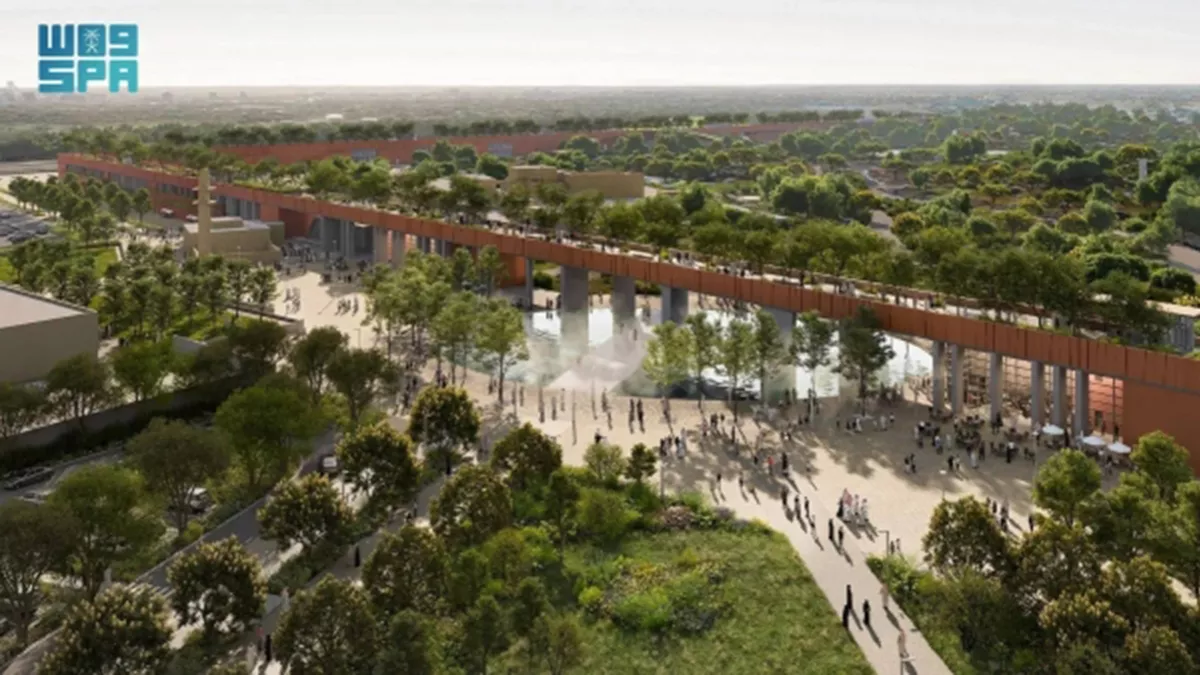
The Board of Directors of the Royal Commission for Riyadh City (RCRC) said that development on Al-Uruba Park, one of the biggest parks in the city, had begun. As part of the "Green Riyadh" initiative, the project will be carried out on a vast 754,000 square metre plot of land. The park will be planted with about 600,000 trees and bushes, making over 65 percent of the total area.
The park is notable for its strategic location at the intersection of Al-Urubah Road and Prince Turki bin Abdulaziz Al-Awwal Road, which makes it convenient for city dwellers to reach.
According to a news release from the commission, the park helps to improve people's quality of life, offer leisure opportunities for locals and tourists, and make Riyadh one of the world's most sustainable cities.
Six international competitors competed in a competition to present the best ideas and designs that achieve sustainability and comply with environmental standards. Among the designs submitted were several that made up the park's unique design that met international specifications. With a three-kilometer length and a 12-meter height, the design offers a panoramic walkway that overlooks the city's notable sites. The design also considers the integration of contemporary technology, allowing visitors to engage in an interactive augmented reality experience as nature and technology work together.
The Laysen Valley that runs through the park, the park size, and the inclusion of permanent bodies of water were all considered during the planning phase. In addition, the park has a 14-kilometer walking track, green terraces, open-air theatres for festivals and events, and sports facilities suitable for a range of age groups.
One of the objectives of the Green Saudi Initiative and the Kingdom's Vision 2030 is to plant 10 billion trees within the Kingdom. The 'Green Riyadh' programme aims to plant 7.5 million trees in the city of Riyadh, increasing vegetation cover to 9 percent of the city's area, raising the per capita share of green space from 1.7 square metres to 28 square metres, which is equivalent to 16 times what it is currently, and improving air quality by reducing dust and pollution. The initiative further elevates Riyadh's standing as one of the world's most livable cities globally.
